Bribri American brothers, Max and Jay, have always depended on each other for their survival. Growing up with a physically abusive father, they have learned that the only way to protect themselves, as well as their mother, is to keep their heads down and adhere to a strict schedule. But after intervening when a classmate gets into a fist fight, resulting in the school’s star soccer player being beat to a pulp by both brothers’ hands, they must grapple with the realization that they may be more like their father than they thought. In order to move forward, they will have to reach back to their Bribri roots.
abuse
The Big Bad Wolf In My House
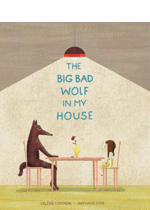
The young girl tells us that her mom’s new friend is just like the big bad wolf. At first the wolf is sweet and kind to her mom, though the girl notices the wolf’s cold eyes from the very beginning. When her mom arrives home late one day, the wolf suddenly hurls angry words and terrible names at her. From that day on her mother doesn’t smile anymore. The girl is careful to clean her room and brush her teeth and do everything to keep the peace, but the wolf is unpredictable, throwing plates on the floor, yelling at her mother and holding the girl’s arm so tightly she is left with bruises. Whenever the yelling begins, she hides under the covers in her room.
We Kiss Them With Rain
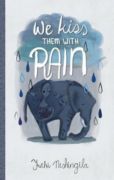
Life wasn’t always this hard for 14-year-old Mvelo. There were good times living with her mother and her mother’s boyfriend. Now her mother is dying of AIDS and what happened to Mvelo is the elephant in the room, despite its growing presence in their small shack. In this Shakespeare-style comedy, the things that seem to be are only a façade and the things that are revealed hand Mvelo a golden opportunity to change her fate. We Kiss Them With Rain explores both humor and tragedy in this modern-day fairy tale set in a squatter camp outside of Durban, South Africa.
I Am Not A Number
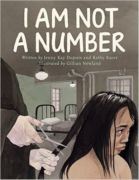
When Irene is removed from her First Nations family to live in a residential school, she is confused, frightened and terribly homesick. She tries to remember who she is and where she came from despite being told to do otherwise. When she goes home for summer holidays, her parents decide never to send her away again.
When The Slave Esperança Garcia Wrote A Letter
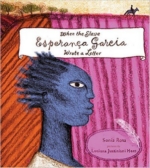
In 1770, the slave Esperança Garcia bravely penned a letter to the governor of Piauí state, in Brazil, describing how she and her children were being mistreated and requesting permission to return to the farm where the rest of her family was living. Before she wrote her letter, Esperança Garcia lived on a cotton farm run by Jesuit priests, where she learned to read and write — a rare opportunity for a woman, especially a slave. But one day, she was separated from her husband and older children and taken with her two little ones to be a cook in the home of Captain Antonio Vieira de Couto, where she and the other slaves were beaten.
Cat Found
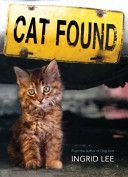
A heartwarming tale about the importance of caring for strays. In Billy’s small town, stray cats are running wild, and there’s growing pressure to get rid of them. The school bullies don’t even hesitate to throw rocks at the poor creatures! So when Billy finds a wounded, starving kitten and sneaks her home, he has to be extra-careful to keep her hidden while he nurses her back to health. However precious little Conga is to him, he knows his dad would take her away if he discovered her, safe and warm in Billy’s bedroom. Can Billy and his friends confront the cat abusers, convince the town of the importance of caring for abandoned animals, and find a safe haven for strays?
Long Story Short
From Ireland’s first laureate for children’s literature comes a story of abuse and neglect told with sincerity, heart, and a healthy dose of humor. Jono has always been able to cope with his mother’s drinking, but when she hits his little sister Julie, he decides it’s time for them to run away. Told in Jono’s funny, self-conscious voice, the layers of his past and the events of his escape are gradually revealed.
The Dreamer
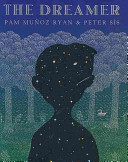
A fictionalized biography of the Nobel Prize-winning Chilean poet Pablo Neruda, who grew up a painfully shy child, ridiculed by his overbearing father, but who became one of the most widely-read poets in the world.
Rich and Mad
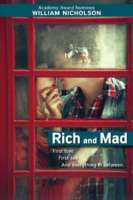
Seventeen-year-olds Maddy Fisher and Rich Ross yearn for love, and after their first attempts at relationships go awry, they find one another and form a deep bond that can only be expressed one way.
My Name Is Number 4: A True Story from the Cultural Revolution
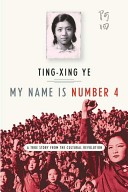
Here is the real-life story about the fourth child in a family torn apart by China’s Cultural Revolution. After the death of both of her parents, Ting-xing and her siblings endure brutal Red Guard attacks on their schools and even in their home. At the age of sixteen, Ting-xing is sent to a prison farm far from the world she knows, where she survives for six years. Eventually, people leave the countryside, and Ting-xing passes the entrance exam for Beijing University, the only person in the prison camp to do so.
